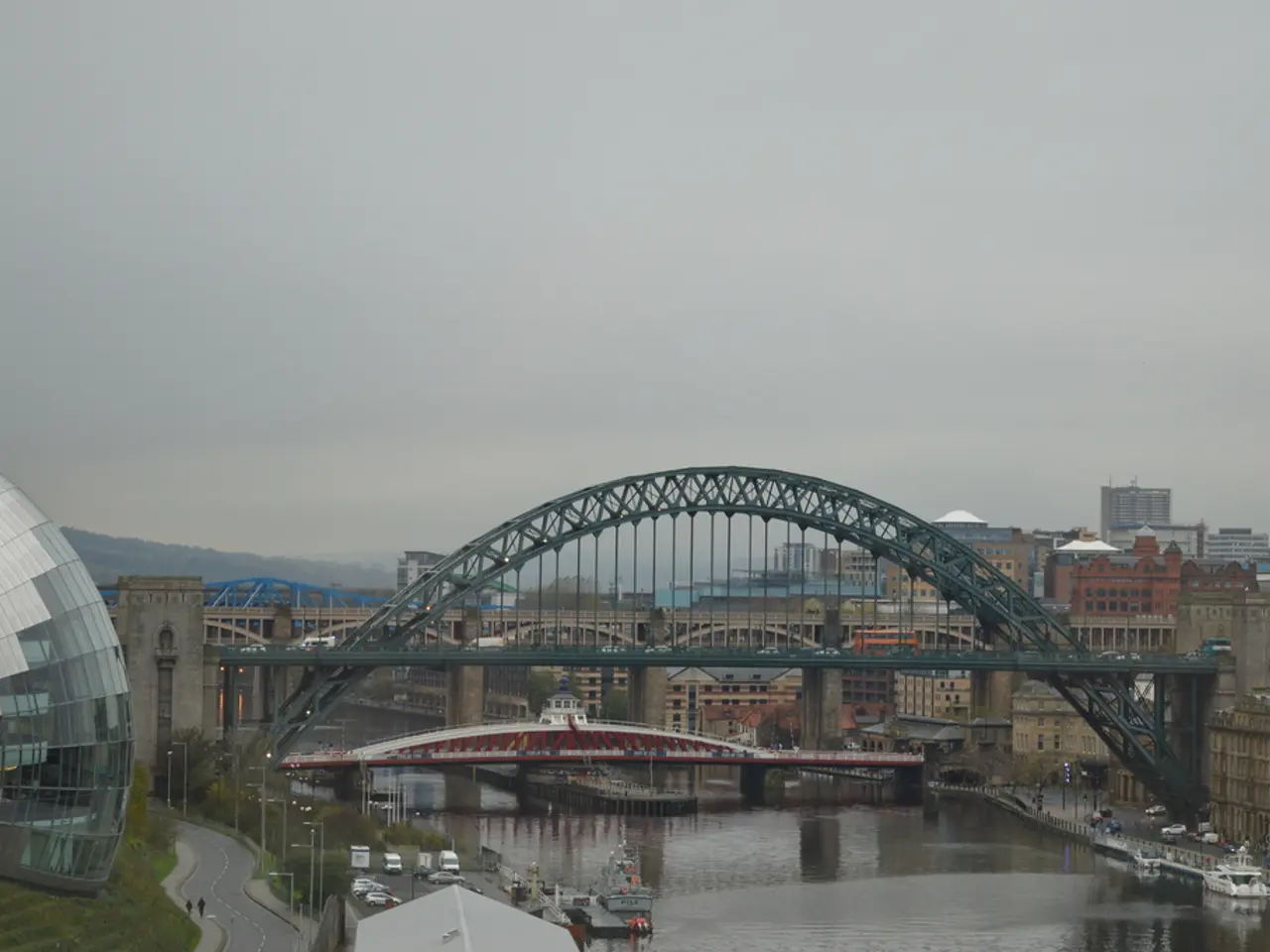Unveiling Avarice and Influence: Investigating Greed, Authority, and Economic Systems
In the gritty and thought-provoking film "There Will Be Blood," directed by Paul Thomas Anderson, we are introduced to Daniel Plainview, a self-made oil tycoon whose relentless pursuit of wealth and dominance serves as a stark critique of greed and power within American capitalism.
Set against the backdrop of the burgeoning oil industry, the narrative follows Plainview's insatiable desire for more, a desire that leads to a cycle of dissatisfaction and anxiety. His achievements and acquisitions never seem to fulfill the deeper need for contentment, reflecting a darker view of capitalism as a system driven by an unquenchable thirst for more.
Plainview's ruthless ambition and moral decay are evident as he exploits others and engages in corrupt practices to expand his empire. His interactions reveal the destructive impact of power struggles on social bonds, highlighting the corrupting influence of capitalism's profit motive on individuals and communities alike.
Critics have lauded the film as an epic and sparse exploration of these themes, with Daniel Day-Lewis's performance embodying the "underhanded heroes" of capitalism—those who achieve success at a great ethical cost. The film's stark portrayal underscores the inherent conflicts within American capitalism, exposing how greed drives both innovation and destruction, shaping societal hierarchies and perpetuating inequality.
The film also illustrates how economic power often translates into political sway, as Plainview uses manipulation to further his interests. This highlights the ease with which power can corrupt, leading to a stark divide between the wealthy elite and the struggling masses. The concentration of wealth and power in the hands of a few can stifle innovation and limit opportunities for upward mobility, further exacerbating societal disparity.
Moreover, the relentless drive for more fuels consumer culture, impacting environmental sustainability and societal values. A small elite amasses fortunes in modern economies, wielding significant influence over global markets and policies. This societal disparity undermines social cohesion and erodes trust in institutions.
On a personal level, greed can manifest as a consuming obsession, driving individuals to sacrifice relationships, integrity, and even their own well-being. Daniel Plainview exemplifies this corrosive nature of greed, as his relentless pursuit of wealth leads to strained relationships and emotional detachment. Loss of meaningful relationships, increased stress and mental health issues, and compromised ethical standards are consequences of personal greed.
In sum, "There Will Be Blood" serves as a profound critique of American capitalism, emphasizing how greed and power shape not only individual behavior but also larger societal frameworks, often with devastating moral and social consequences. The film offers a poignant examination of greed and power, serving as a cautionary tale about the destructive potential of the relentless pursuit of power.
- The movie "There Will Be Blood," a critique of American capitalism, belongs in the genre of thought-provoking films that delve into the complexities of wealth and power, such as education-and-self-development books on personal growth and movies-and-tv series about career-development.
- Daniel Plainview, the self-made oil tycoon in "There Will Be Blood," serves as an example of the indie-style anti-heroes that populate films, his ruthless ambition and moral decay mirroring the themes found in books on personal-growth and skills-training.
- The movie's premier at the cinema was followed by extensive discussion on the entertainment channels, with critics praising it as an animation of the epic struggle between the few elite wielding power and the masses grappling with societal disparity, symbolizing the concentration of wealth in modern economies.
- Modern economies are shaped by the powerful elite amassing fortunes, as pointed out in "There Will Be Blood," which showcases how economic power can lead to political sway, impacting environmental sustainability, societal values, and social cohesion.
- The movie's protagonist Daniel Plainview embodies the negative effects of greed on personal growth, as his relentless pursuit of wealth leads to deterioration in relationships and emotional unavailability, serving as a cautionary tale in self-education and self-improvement.
- "There Will Be Blood" offers a compelling critique of American capitalism, revealing how greed and power can lead to societal destruction and overwhelm the moral foundations of individuals and communities, making it an important addition to discussions on career-development, personal-growth, and social norms.




